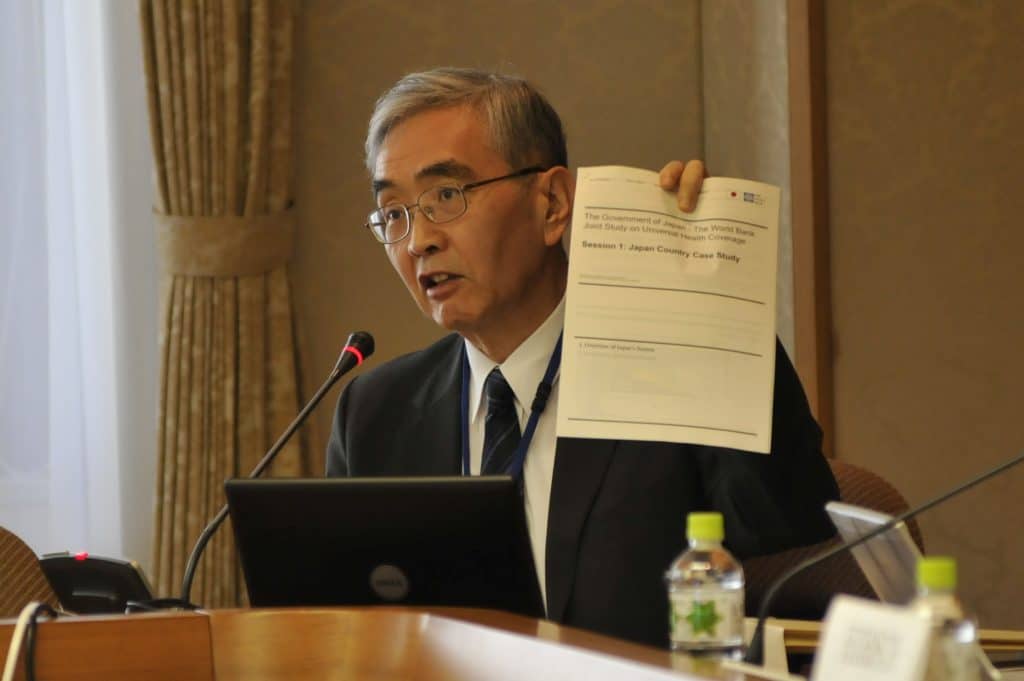JCIE launched a Japan–World Bank Partnership Program on Universal Health Coverage (UHC) in 2012 as part of its Global Health and Human Security program to examine lessons from Japan’s health system, especially its achievement of UHC more than 50 years ago. The goal of the program was to explore how these lessons can be applied to other countries that are trying to develop systems of universal health coverage. The project focused in particular on financing and human resources, two key components of health systems. JCIE is coordinating the program activities in Japan, including the development of a case study on Japan and various related meetings, through close consultation with the World Bank and various other stakeholders.
This was the second meeting of the project and was held on the sidelines of the IMF/World Bank Annual Meetings
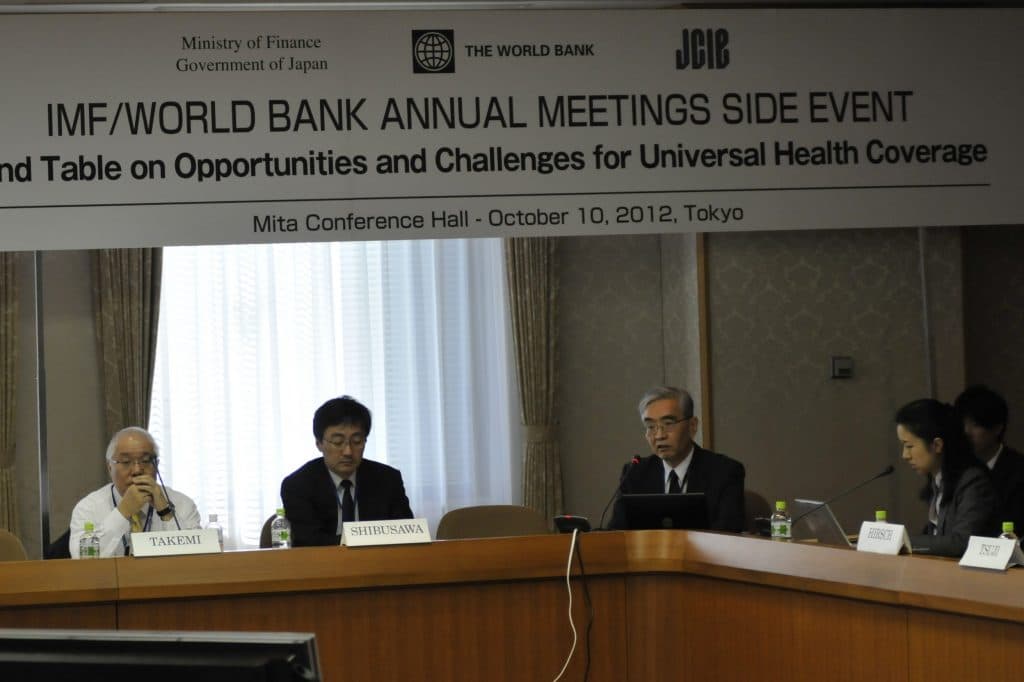
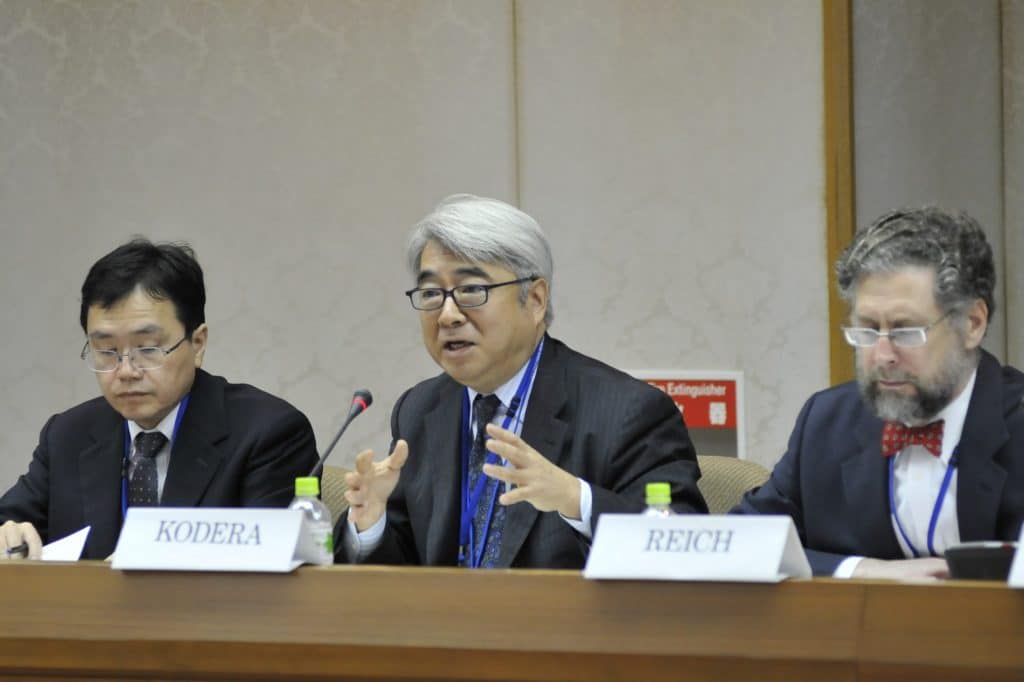
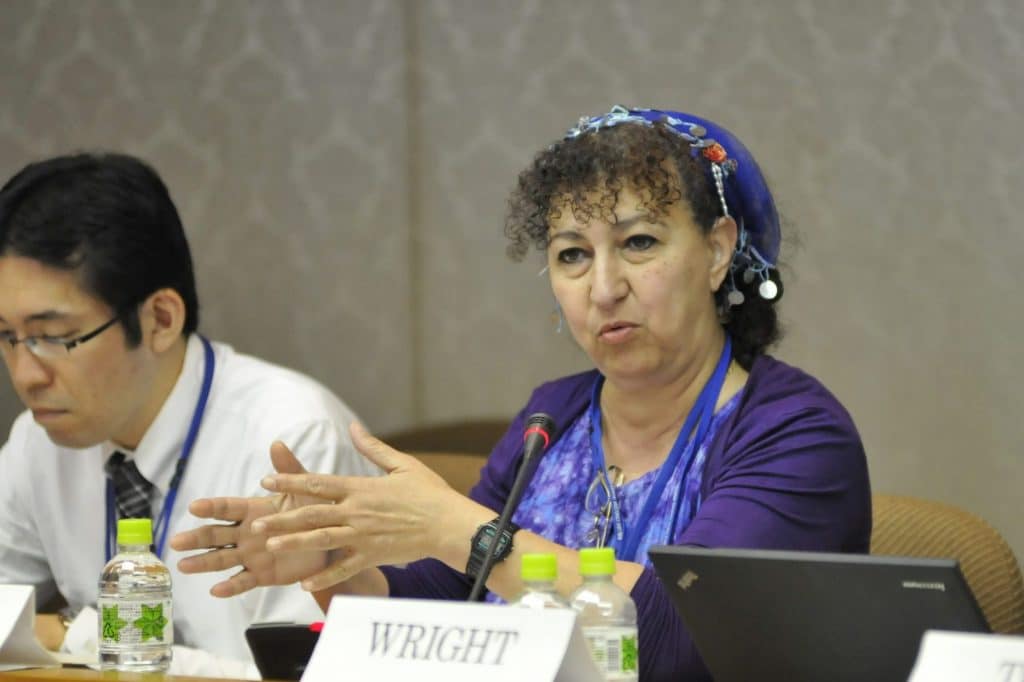
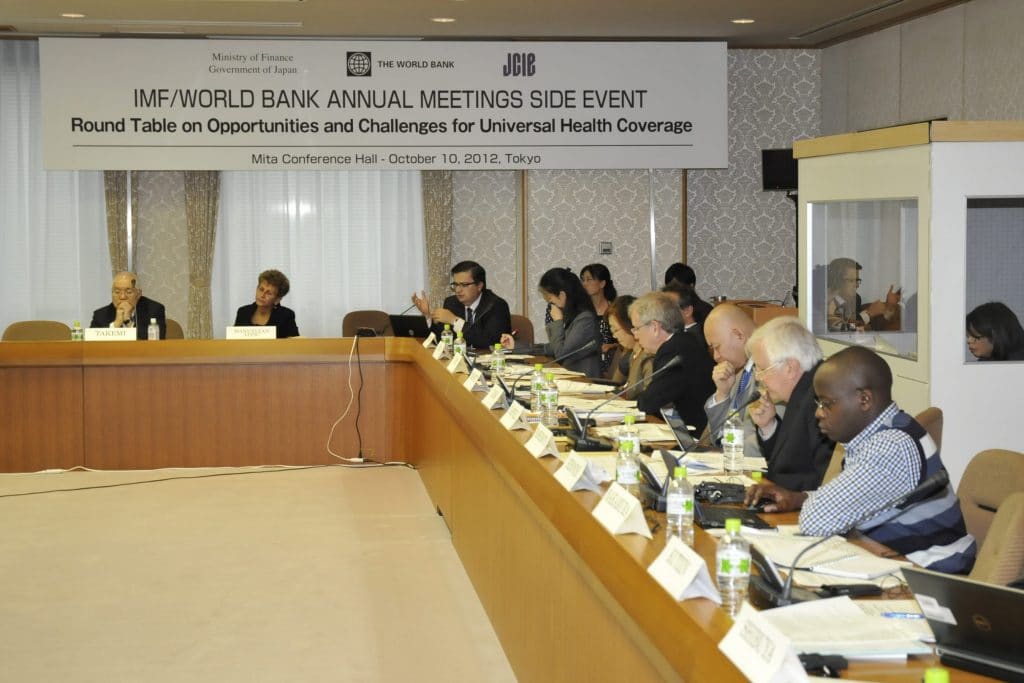
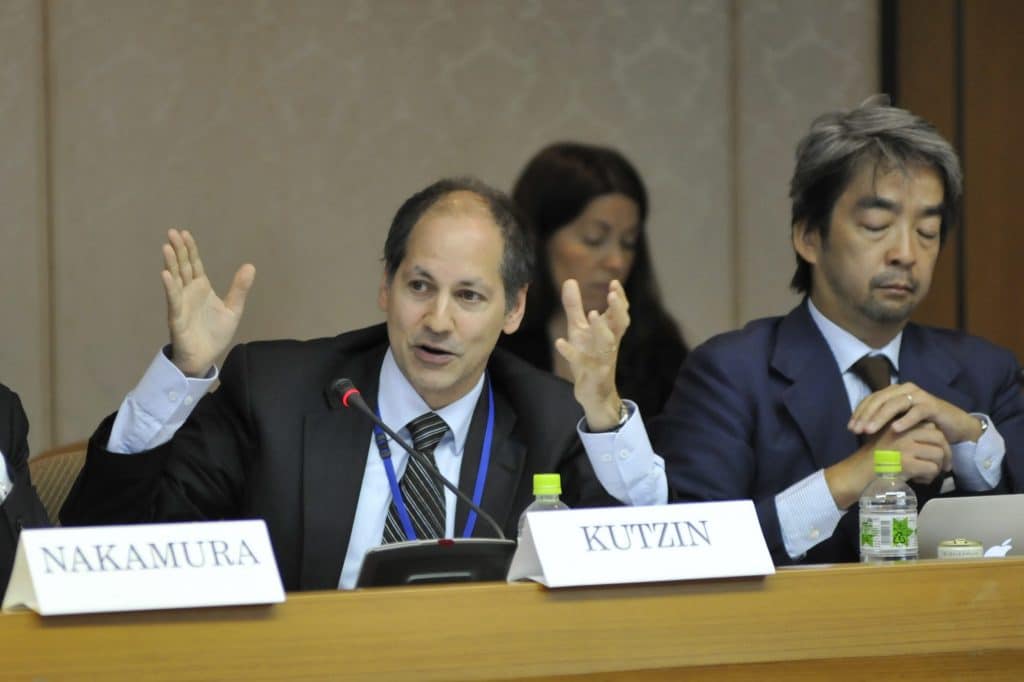
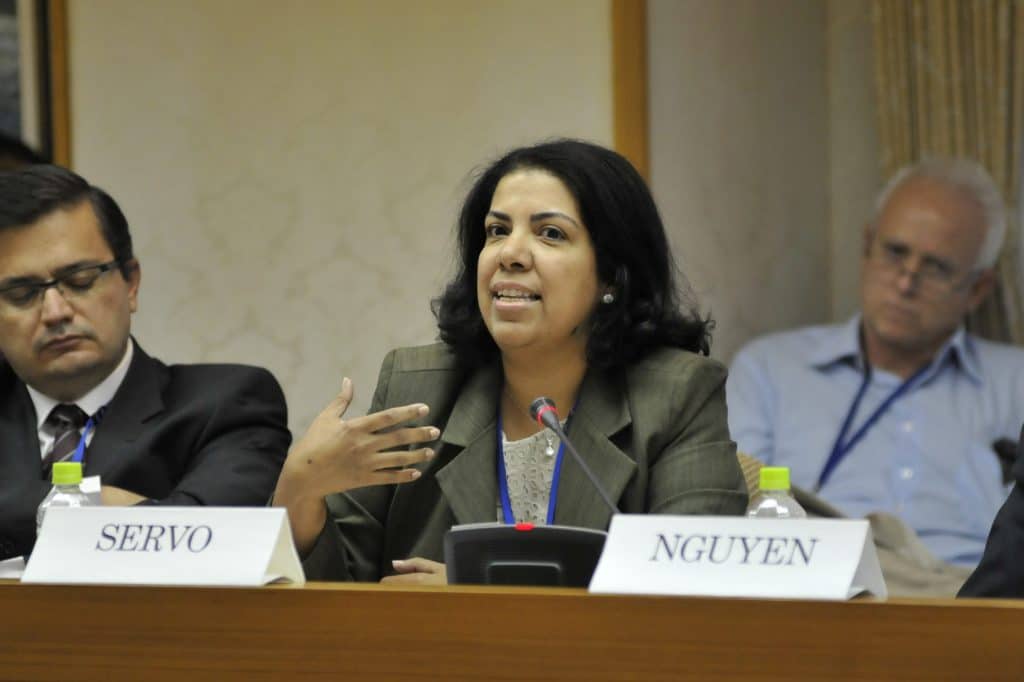
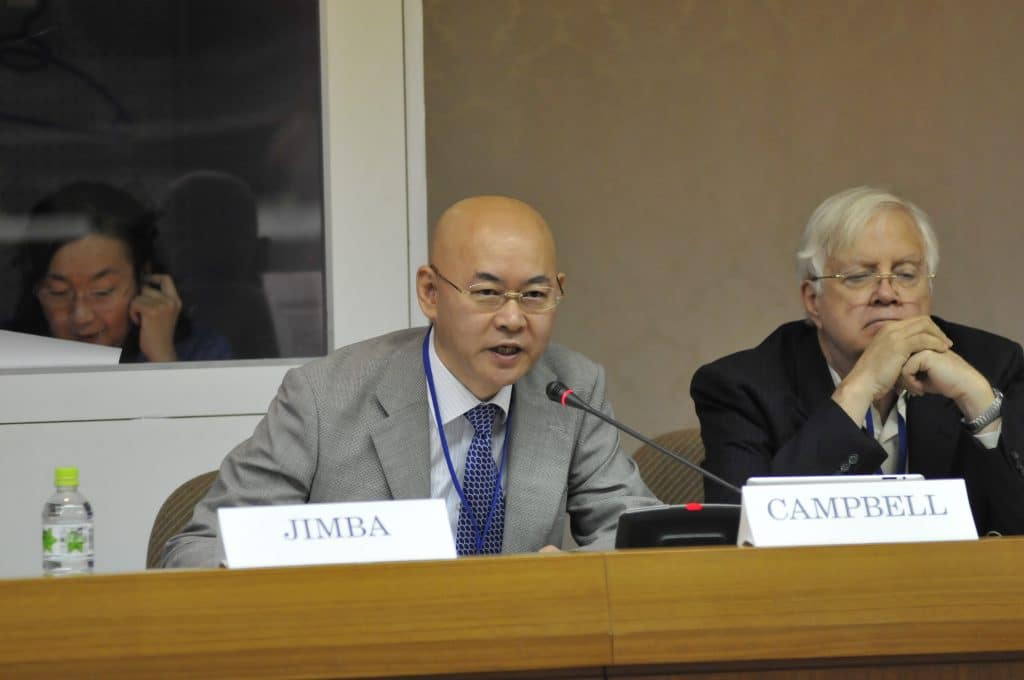
Professor Keizo Takemi, Senior Fellow, Japan Center for International Exchange [overall moderator]
Opportunities and Challenges in Designing and Implementing Universal Health Coverage:Ms. Nicole Klingen, Acting Director, Health, Nutrition and Population, Human Development Network, The World Bank
Session 1: Successes and Challenges in Maintaining Universal Health Coverage—Global Lessons from Japan
Moderator Professor Michael Reich, Taro Takemi Professor of International Health Policy, Harvard School of Public Health
Key Speaker
Professor Naoki Ikegami, Professor and Chair, Health Policy Department, Keio University School of Medicine [UHC Case Study from Japan]
Supplementary input on Japan’s historical experience in managing the Fiscal Space
Professor Shuzo Nishimura, Director-General, National Institute of Population and Social Security Research; Professor Emeritus of Economics, Kyoto University
Supplementary input on Japan’s historical experience of HRH policy in achieving UHC
Mr. Kiyoshi Kodera, Vice-President, Japan International Cooperation Agency (JCIA)
Q&A and Discussion
Discussant
Dr. Pongpisut Jongudomsuk, Director, Health Systems Research Institute, Thailand
Session 2: Successes and Challenges in Maintaining Universal Health Coverage—Progress Report on Global Research from France and other Developed Countries
Moderator
Professor Michael Reich
Key Speaker
Dr. Michael Borowitz, Senior Health Economist, OECD
Q&A and Discussion
Session 3: Universal Health Coverage—Challenges and Opportunities for Developing Countries: Presentation of Proposed UHC Country Case Studies
Moderator
Dr. Akiko Maeda, Lead Health Specialist, The World Bank
Session 3–a: Country Cases from Middle Income Countries
Thailand: Dr. Peerapol Sutiwisesak, Deputy Secretary General of the National Health Security Office; Dr. Pongpisut Jongudomsuk
Turkey: Dr. Salih Mollahaliloglu, Member of the Board, National Health Policies Board, Ministry of Health, Turkey
Brazil: Ms. Luciana Mendes Santos Servo, Health Coordinator of the Department of Social Studies and Policy, Institute for Applied Economics Research, Brazil
Discussant
Professor Soonman Kwon, Dean and Professor of Health Economics and Policy, Seoul National University
Q&A and Discussion
Session 3–b: Country Cases of Low Income and Lower Middle Income Countries
Vietnam: Dr. Nguyen Hoang Long, Vice-Director, Planning and Finance Department; Dr. Tran Van Tien, Vice-Director, Health Insurance Department, Ministry of Health, Vietnam
Indonesia: Dr. Toomas Palu, Health Sector Manager for East Asia and Pacific Region, The World Bank
Ghana: Dr. Cheryl Cashin, Health Economist, Provider Payment Track/Joint Learning Network for Universal Health Coverage
Discussant
Dr. Joseph Kutzin, Coordinator, Health Financing Policy, WHO
Q&A and Discussion
Plenary Session
Moderator
Dr. Akiko Maeda, Lead Health Specialist
Roundtable Discussion on:
Lessons from Japan’s case study
Identification of key research agenda and potential lessons for global sharing
Next steps
Closing Remarks and Thanks:
Professor Keizo Takemi Dr. Tamar Manuelyan Atinc, Vice President, Human Development Network, The World Bank

